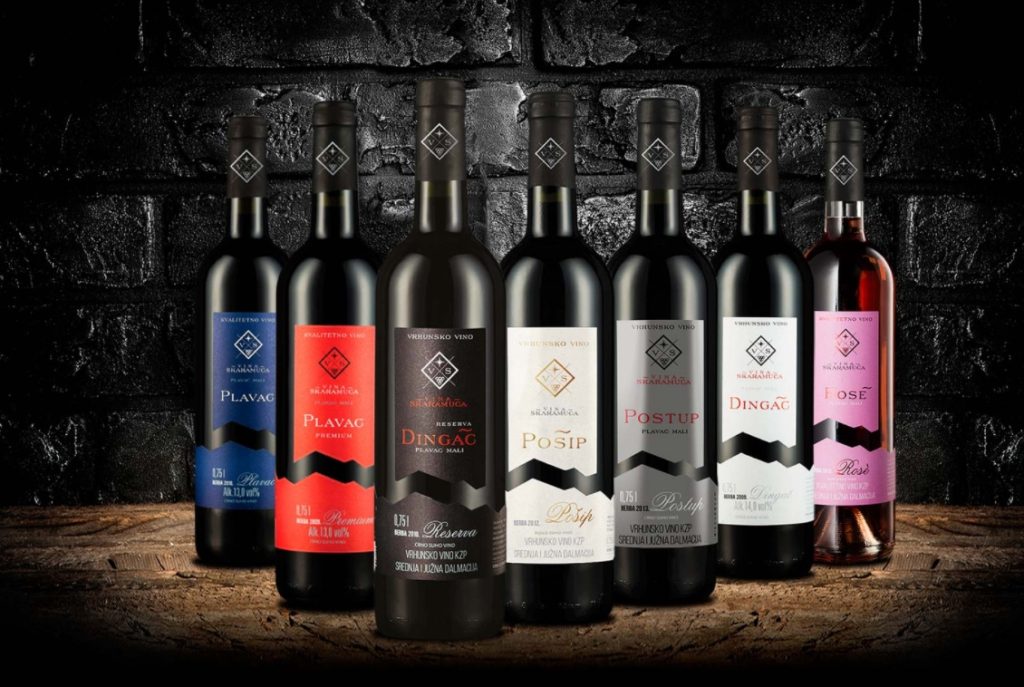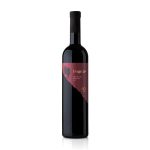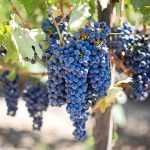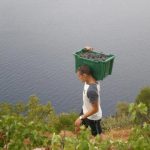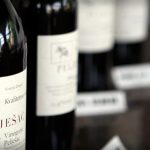On last Friday in the Spar store in Jurišićeva Street in Zagreb, we bought a bottle of Plavac Skaramuča 2016 for exactly 25 kunas. The same amount paid for a package of toilet paper. You see, Ivo Skaramuča is one of the creators of the Croatian private wine industry. Even more, the Skaramuča family owns the largest vineyard on Dingač, the most renowned Croatian wine position, legally protected since the beginning of the 1960s. The Skaramuča name should, thus, mark one of the most respected Dalmatian and Croatian wine brands, seeing it incorporates tradition and superior terroir. The owner of the largest vineyard on Dingač is expected to show high quality and certain exclusivity.
Instead, Skaramuča’s wines are sold in supermarkets at the price of German toilet paper, which is complete disaster for a potentially prestigious brand as Skaramuča should be, as well as the image of Pelješac winemaking and vine growing. The wine itself is not all bad. It has a lovely dark red colour, smells of sweet overly ripe grapes and baked cherries, but is bland in taste, with an ugly aftertaste of old barrels, typical for a large number of poorly made Dalmatian wines (although this wine probably never saw the inside of a barrel), while the concentration dangerously dances on the edge of dilution. This is hence a typical lower grade supermarket product, which justifies its low price.
As readers of Plava Kamenica know well, we are not against low prices of wine. In fact, we have often supported bottles costing between 30 and 40 kunas, as they enable a wider audience to be introduced to quality wines. But the principle 30 (25) to 40 cannot work for all Croatian wines. This pattern of sales suits large producers such as Ilok Cellars, Laguna, Belje and Kutjevo, who make a living from selling millions of litres. Their main contribution to the Croatian wine industry is being able to deliver very decent wines (much better than Skaramuča’s Plavac), in any price range. They are educated mass producers whose vine growers and oenologists know how to make a good wine. On the other hand, Skaramuča is not and cannot be a mass producer. Skaramuča is Dingač! Dingač, to reiterate, must mean high quality and a higher price. Otherwise Dingač make no sense.
If the Skaramuča family must (or thinks it must) sell third rate wins for 25 kunas, they must not do it under their name. They should have created a separate brand in that price range, to affirm the mass availability of Plavac and some of its easily recognisable characteristics such as tradition and connection to consumer habits in the Croatian south, but not tied to the Skaramuča name.
Thus they should have marketed another brand, if selling wine for such small money, intended only for the cheap shelves of supermarkets. This way, their Plavac at the price of toilet paper, necessarily and unavoidably compromises Dingač and Postup Skaramuča. Any sensible caterer will not keep Dingač and Postup from the same producers selling Plavac for 25 kunas. Smaller, private wine producers live off their reputation. This is the first rule of their job. The moment they give up their own renown, their market drop begins. The case of Skaramuča winery is sadly illuminating in terms of not understanding basic rules of long term wine sales.
For the original and more from Plava Kamenica, click here.

